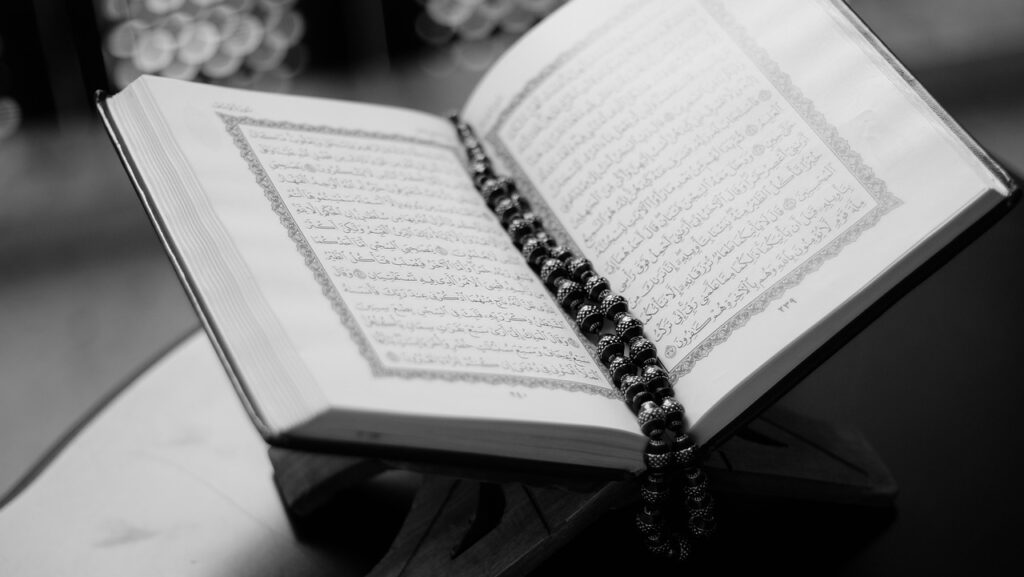In 2025, Ramadan in the UK will likely begin on Friday 28th February and end on Saturday 30th March (depending on moon sightings). Those observing the holy month will be fasting and taking part in religious practices for 30 days.
Many working Muslims will be fasting from sunrise to sunset every day, which could be around 17 hours of not eating or drinking every day for 30 days.
Although fasting is usually the primary association with Ramadan, the month involves a lot more exertion than refraining from food and water. Eating your first meal at sunset, extra prayers, late nights and a heightened emphasis on patience and virtue are all part of experiencing the holy month.
HR practitioners, line managers and other stakeholders need to be aware of the personal and religious sensitivities of their Muslim employees during this period.
Understanding their experience and accommodating their particular needs shows good management and helps ensure people perform to the best of the abilities. Implementing policies that accommodate can only lead to nurturing mutual trust and ultimately lead to higher staff retention, better morale, more effective teams and greater productivity.
Muslims as a whole have specific religious boundaries; Ramadan is a time when many of these become more acute.
Although consultation is always key to creating policy, there are some best practice guidelines that HR professionals and others can adhere to when wanting to address Ramadan in the workplace.
Some suggestions are made in this article; however, their relevance will really come down to understanding your workforce, whether it has 1,000 Muslims or one Muslim.
It’s crucial and cannot be stressed enough that these are very general guidelines. Muslims differ from generation to generation, culture to culture, some are more devout than others and interpretations and practices of the faith are numerous.
It may also be the case that the individual is Muslim by name only and chooses not to practice their religion. Information covered here will be considered applicable to the mainstream of Muslims but not all.
What is Ramadan?
The word ‘Ramadan’ simply refers to the name of a month, the ninth month of the Islamic calendar. This month is considered to be the holiest of the twelve as it was in Ramadan the Prophet Muhammad initially received divine revelation.
In short, it is considered the month of the year you dedicate yourself to God.
The Islamic calendar is calculated according the lunar cycles. Ramadan therefore begins when the new moon is sited. As a result the start and finish times change from year to year, usually getting 10 days earlier every year.
At present, in the UK Ramadan takes place between late Winter and early Spring. While daylight hours are beginning to increase, the fasting period is shorter for Muslims in Britain compared with a summertime Ramadan.
What do Muslims do in Ramadan?
The basic requirement is for all Muslims to fast from sunrise to sunset. Fasting means that no food, water, smoking, chewing-gum or anything else can go past the lips.
As well as physical things that can break one’s fast some actions are considered impermissible while fasting, including the telling of a lie, slander, denouncing someone behind their back, a false oath, greed or covetousness.
The fast is broken at sunset with a meal called iftar. Most Muslims will do so with water and dates which is traditional. After sunset they are then able to drink and eat without limitation.
In addition to fasting, Muslims will also spend most of their evenings in a special prayer called taraweeh which is usually performed in congregation at a mosque. The prayer can take anywhere between one to three hours.
Eid ul Fitr
The end of Ramadan is celebrated with the Eid ul Fitr – Festival of Fast-breaking. On the first day Muslims would usually go to the mosque for a special prayer. This is followed by a two or three-day holiday in which families and friends visit each other, exchange gifts and socialise. In the UK, we can anticipate big celebrations will take place across these few days and should therefore expect holiday requests around this time from Muslim employees.
Best practice for Ramadan at work
- Establish when Ramadan is approaching and who this could affect at work. Muslims will not mind if asked about the upcoming month and without having to be direct, one should be able to know whether or not they will be fasting.
- Ensure all staff who work with Muslim colleagues are aware of what fasting entails and how this could impact someone. Fasting 17 hours a day is not easy and colleagues need to appreciate how this can translate into behaviour and working practices.
- If shift work is the norm, look at any changes that can be made to offer those fasting the opportunity to swap shifts or change their working hours in a way that suits all parties.
- For those in 9-5 roles, consider flexitime options for start and finish times. See if allowances can be made for people to work lunch hours and breaks in return for an earlier finish. Given the current circumstances, with many employees working from home, it should be easier for employers to allow greater flexibility for Muslim employees who are fasting.
- Asking a Muslim to attend a lunch meeting or a Friday ‘wind-down’ drinks party demands a lot of them. Many may politely agree, as will many decline. Be understanding of those who do not feel comfortable sitting and watching people eat and drink.
- Make special allowances for Muslims to take a break at sunset to break their fast if they are front-line workers and still happen to be on shift. Give them ample time to break their fast, pray and then eat properly.
- If your organisation has a canteen for workers, try and arrange for some meals to be saved for people fasting so they are not left choiceless at the end of their day.
- Avoid booking in meetings for the afternoon. If high concentration levels are needed from people, don’t expect this after lunchtime. Use the morning when people are still relatively fresh.
- Do not expect people to commit to evening events, even if they are just online video meetups. The evenings are dedicated to eating, prayers and potentially virtual gatherings within the family and wider community.
- Be prepared for people to take between 1-5 days holiday at the end of Ramadan to celebrate Eid. This has the emotional equivalent to Christmas and is the one time of the year whole families and neighbourhoods usually get together to share presents and good food.
- For fasting team members who are working remotely, work out time differences and how their daily routine will impact you in terms of meetings, deadlines, SLAs, etc.
- Try and use Ramadan as a platform for greater understanding and improving team dynamics. Why not throw a virtual or in-person iftar one evening and allow people to share a part of their lives with colleagues?






